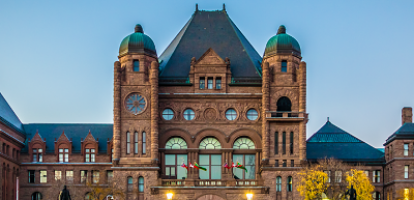To: Canada’s Minister of Finance
From: Bill Robson
Date: January 23, 2017
Re: Fairer Taxation of Canadians’ Medical Expenses
Your government is reviewing many aspects of Canada’s tax system, including how personal income taxes treat various health-related costs. While such reviews are always helpful, a worrying rumour is going round: that your upcoming budget will tax employer-paid health premiums as part of employees’ income.
Such a measure, especially as a one-off, would be a dismal result of your review. Federal income taxes are already unfair to many taxpayers with nondiscretionary expenses – especially medical costs. Our first priority should not be higher taxes: it should be tax relief – both for Canadians who are already sick or disabled, and for Canadians buying insurance against that risk.
Focus narrowly, and not taxing employer-paid premiums looks unfair when people buying insurance on their own do it from post-tax income. Step back, though, and the big problem is not exempting some people’s health-related costs, it is taxing others.
A key principle of personal taxation is ability to pay. Suppose one person earns $60,000 and has non-discretionary expenses of $10,000. Her neighbour earns $50,000 and has no such expenses. Both have the same discretionary incomes. Both should pay the same tax.
That is why we exempt income such as workers’ compensation benefits and veterans’ disability awards from personal tax. And why we provide deductions such as childcare expenses, union dues and many employment costs. They put people who need income to cover nondiscretionary expenses on a level with people who do not.
Because a previous federal government was deficit-ridden and revenue-hungry when we revamped personal taxes in the 1980s, some deductions for non-discretionary expenses got converted into credits at the lowest rate. Since then, people above the lowest bracket have paid tax on income they need for a variety of non-discretionary costs – including disability and medical expenses.
Worse, the medical expense credit is only available for expenses above 3 percent of net income or $2,237. So many sick people at all income levels – especially those who have problems with the paperwork needed to track their annual totals – pay tax on income healthy people would not need.
From this perspective, a comprehensive review of how we tax health-related costs would conclude that we are not generous enough. People do not incur medical expenses for fun. They need prescription drugs, vision, dental, physiotherapy, mental health, critical illness and disability – many things governments will never cover completely. They should be able to deduct those costs, in full, from taxable income.
Similarly, people do not buy health insurance for fun. Whether in employer-sponsored plans or not, people paying in advance for treatment they may need in the future should get the same treatment as people paying for treatment when they need it. They should also get a deduction.
I hope the rumour about taxing employer-paid health benefits is false. The problem isn’t that we tax health-related expenses too little, it’s that we tax them too much. More generous tax treatment for all health-related expenses would be a much better measure for the 2017 Federal Budget.
William B.P. Robson is President and CEO of the C.D. Howe Institute
To send a comment or leave feedback, email us at blog@cdhowe.org.





